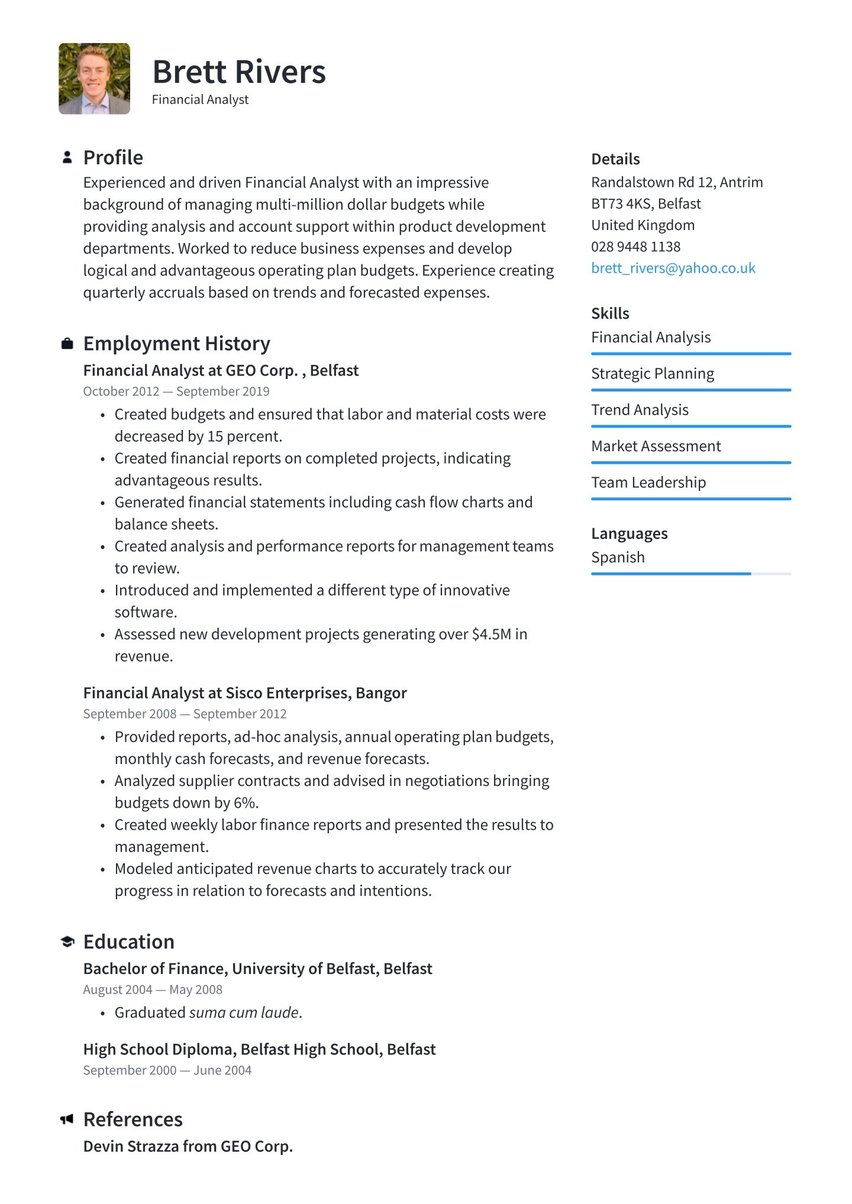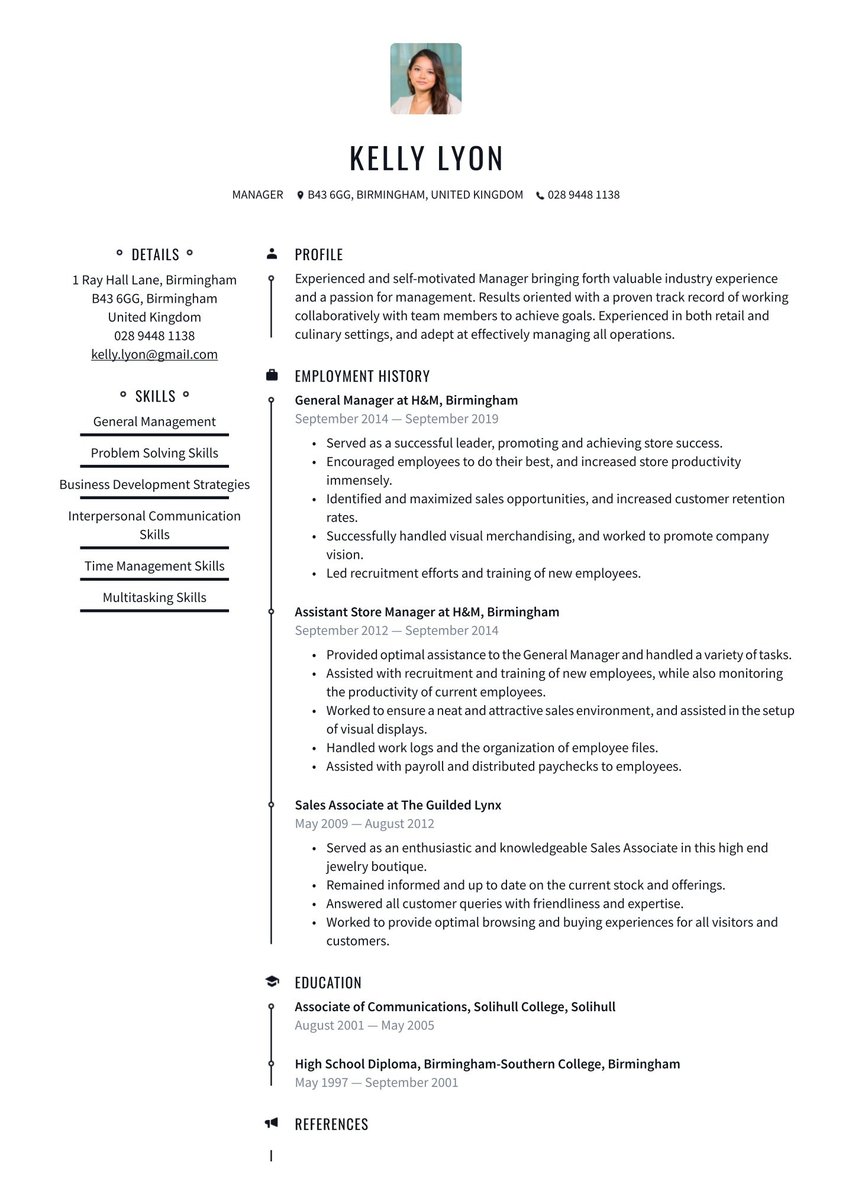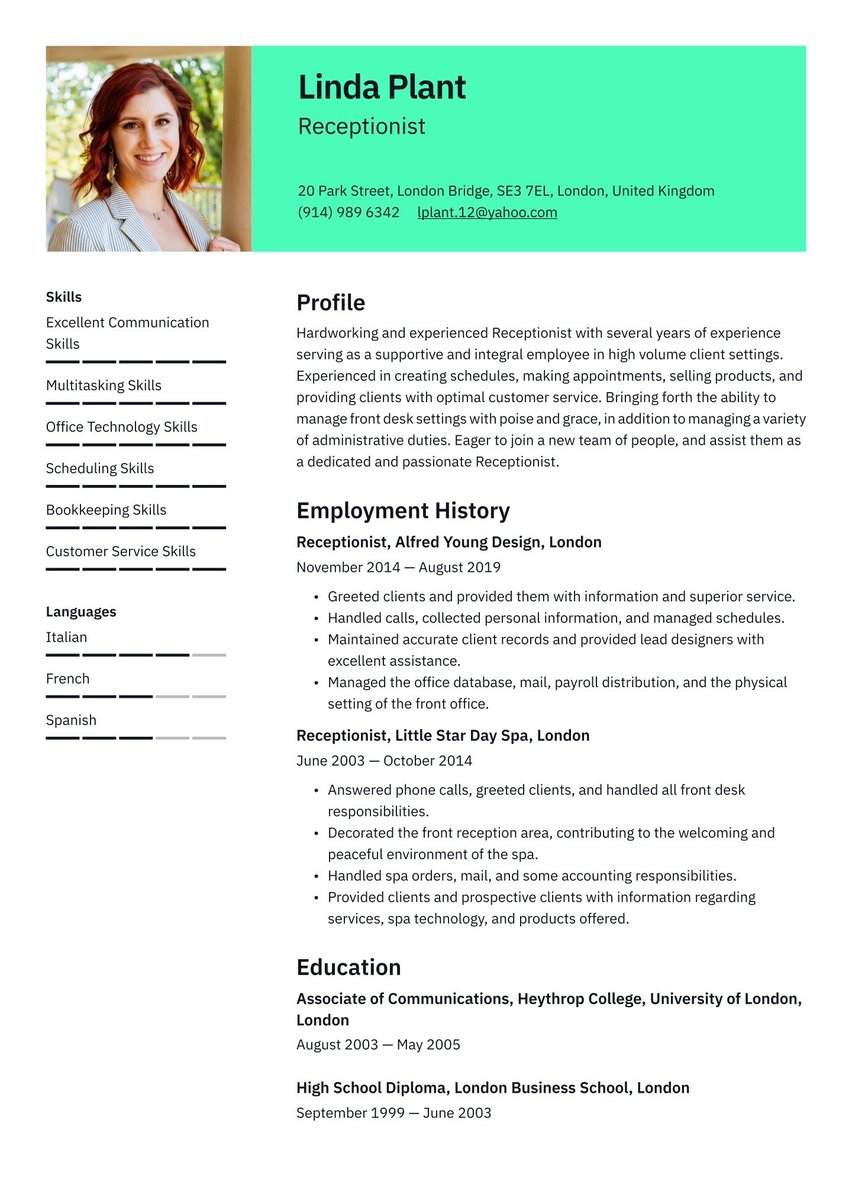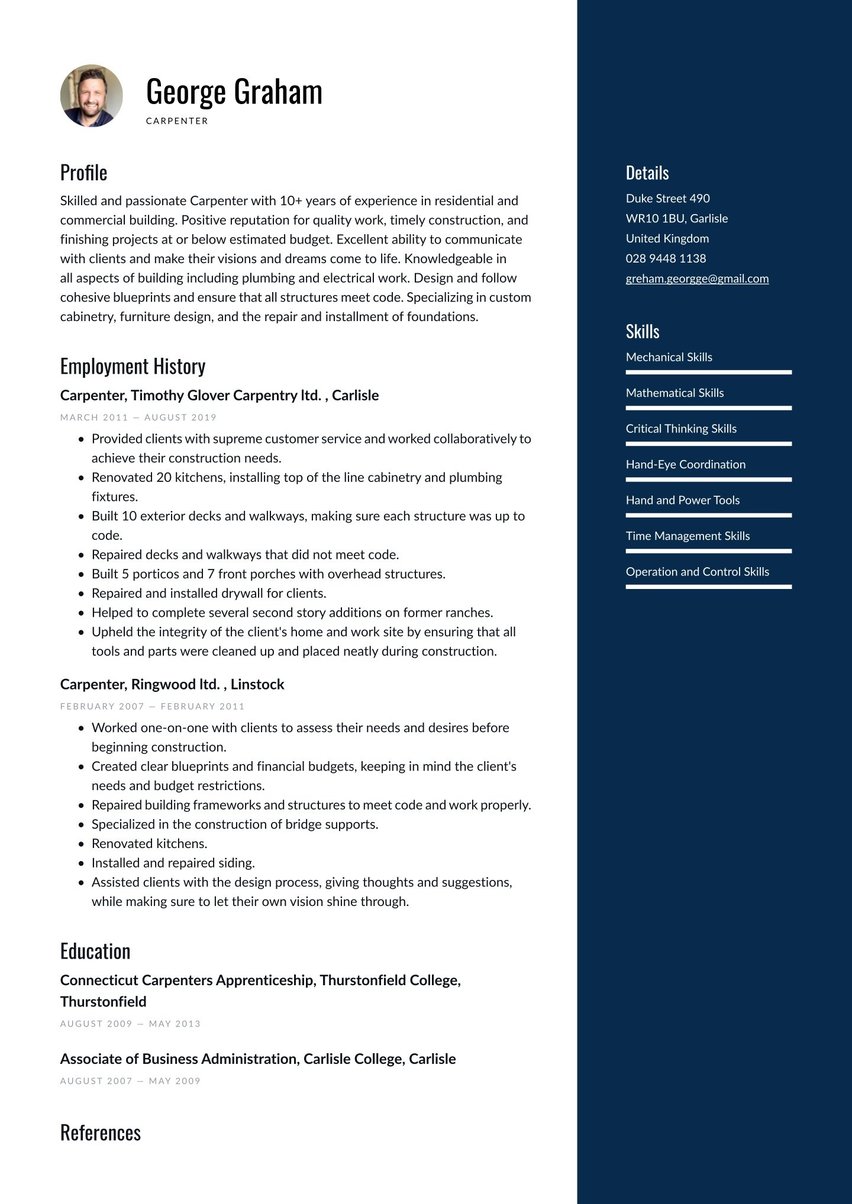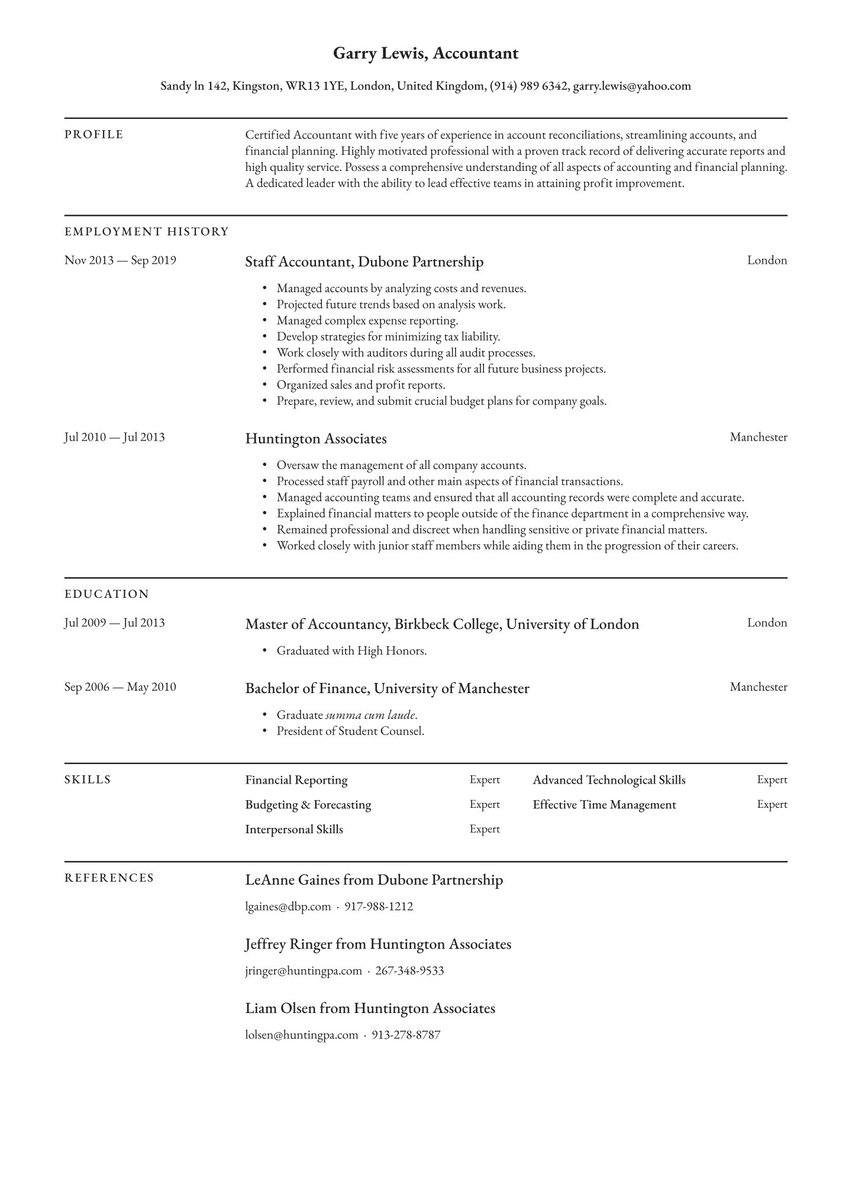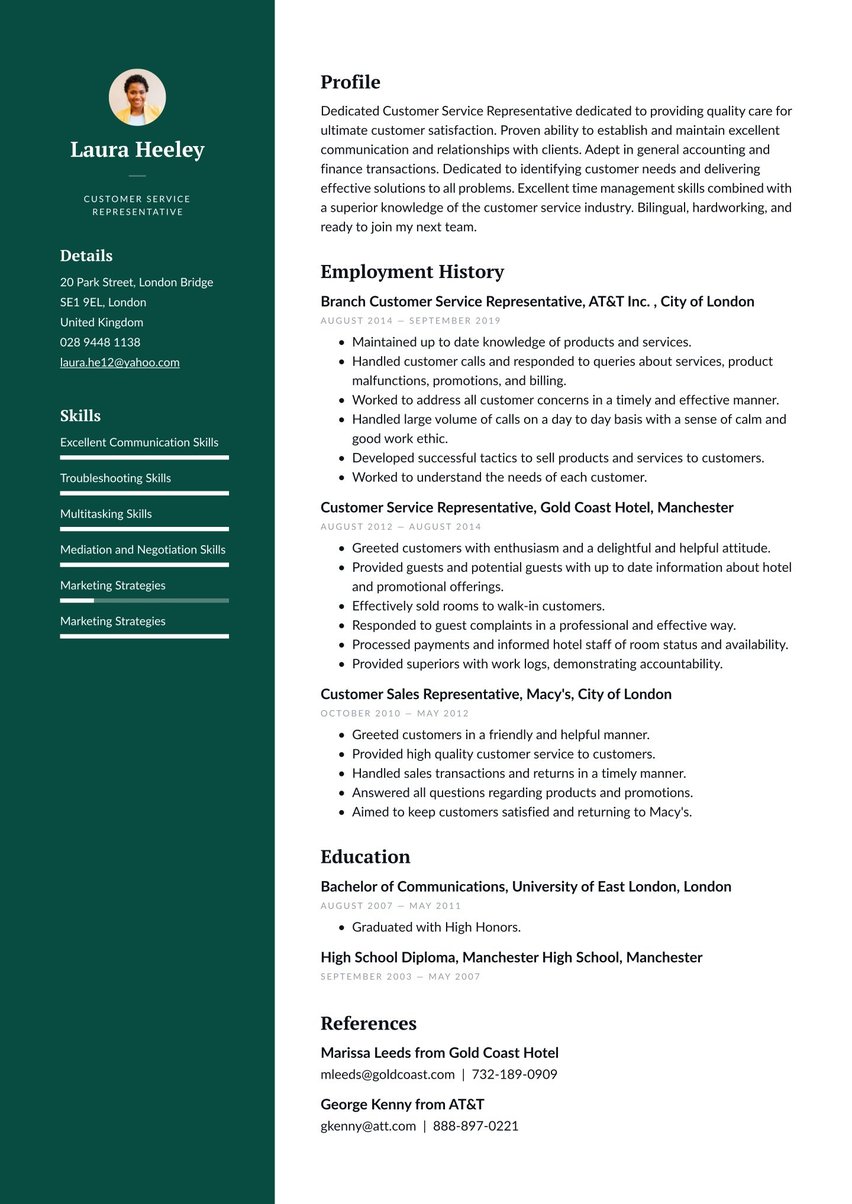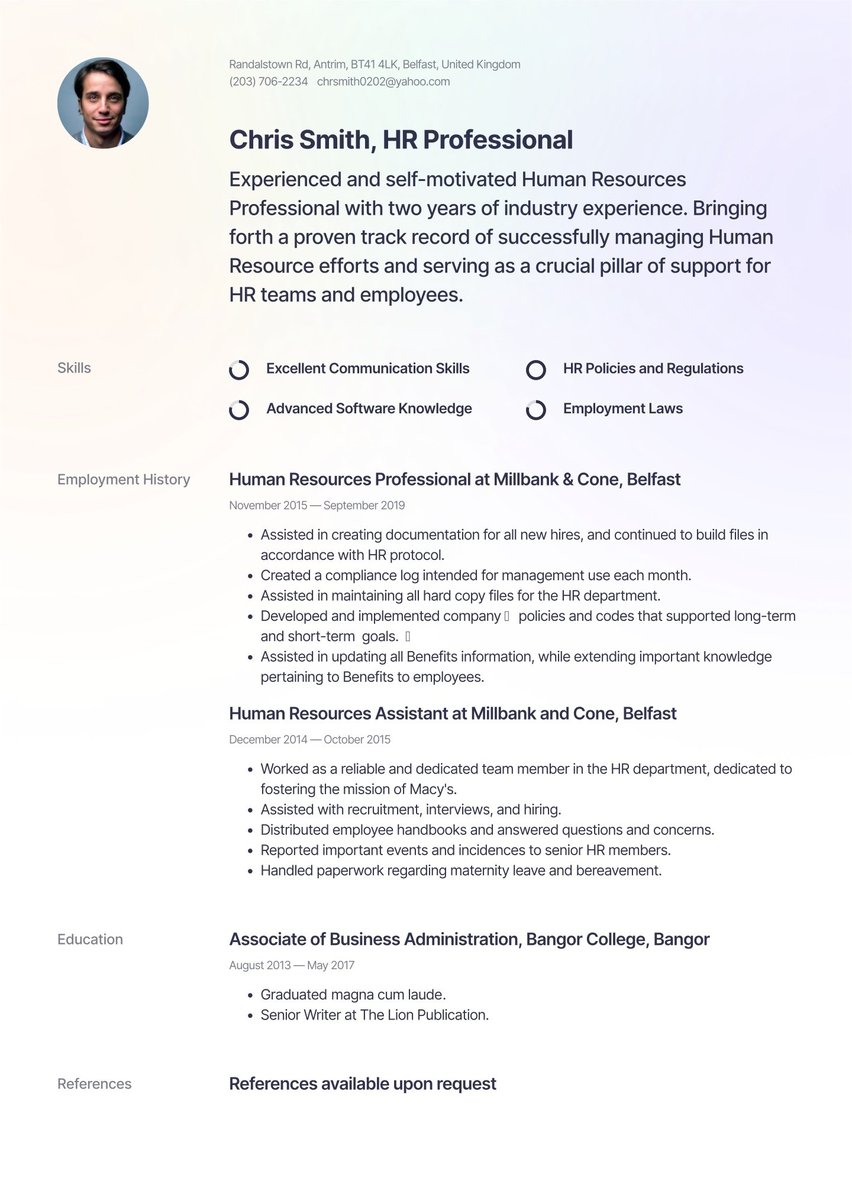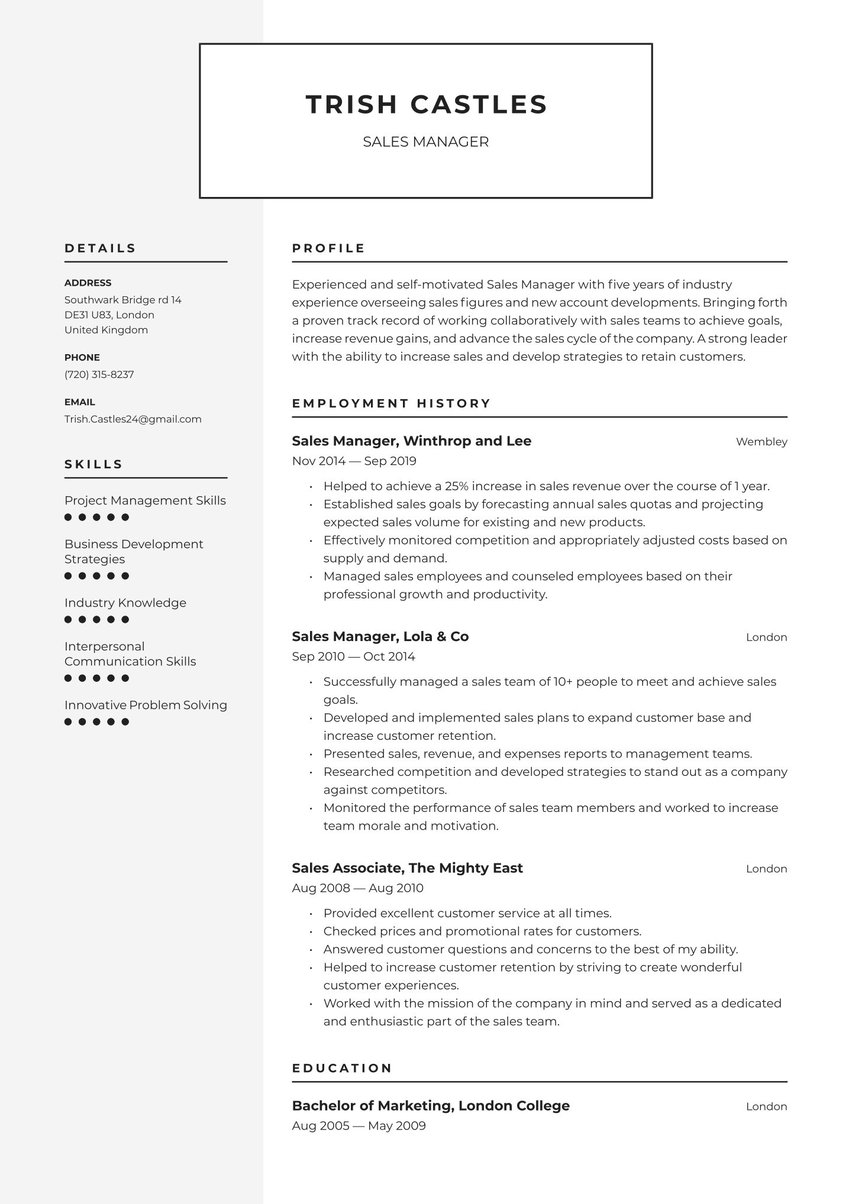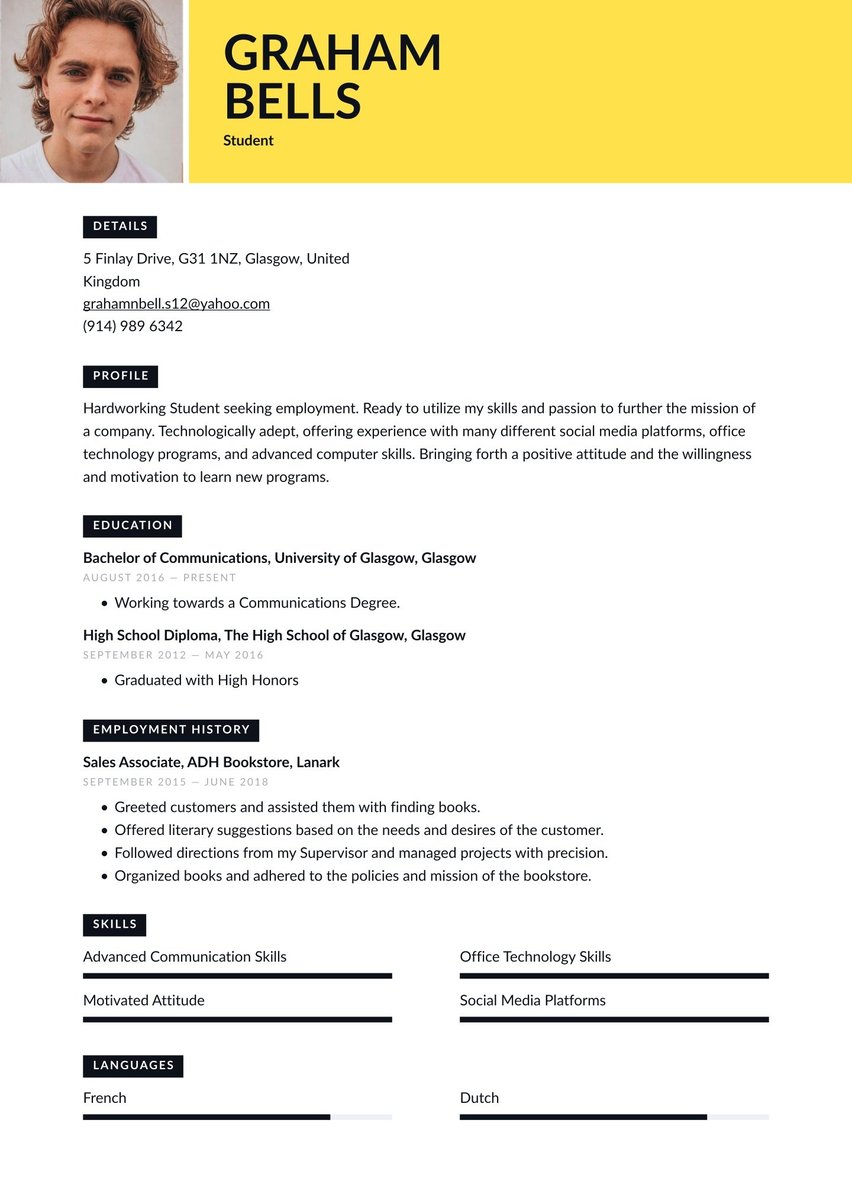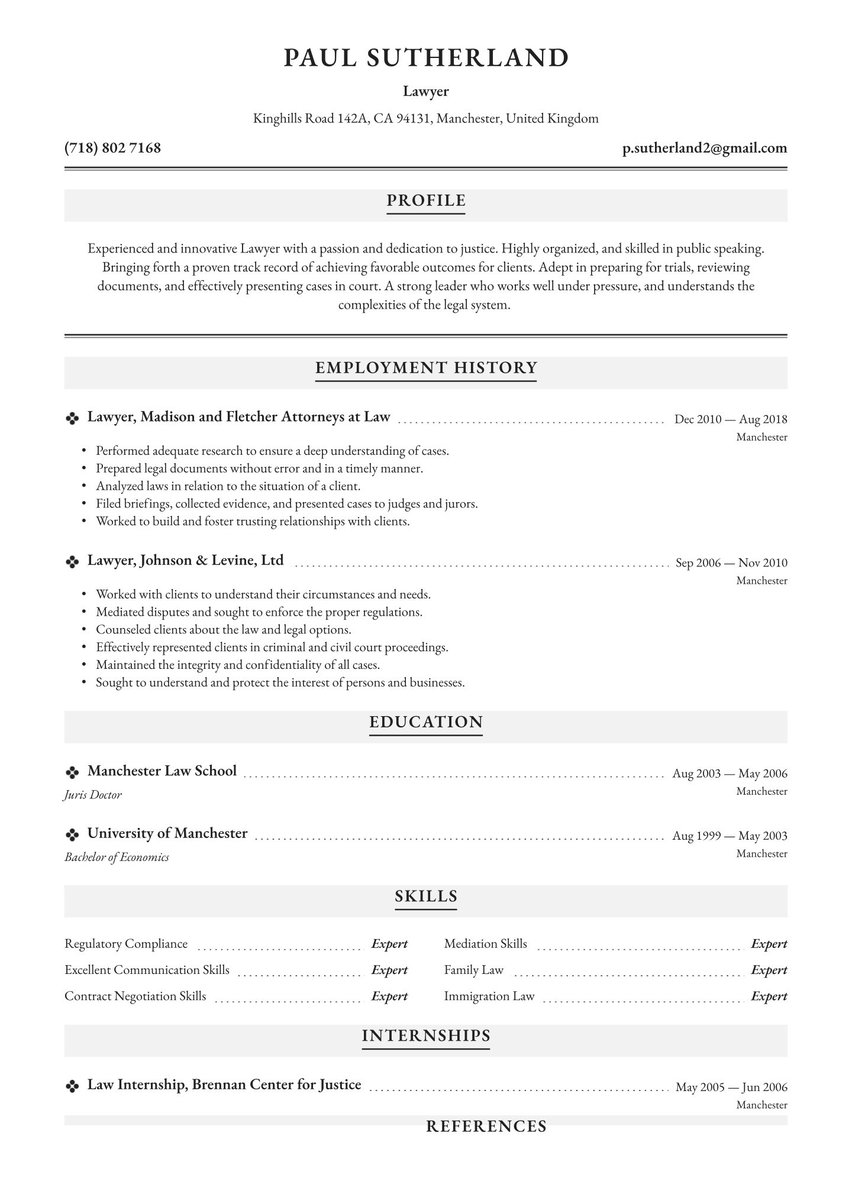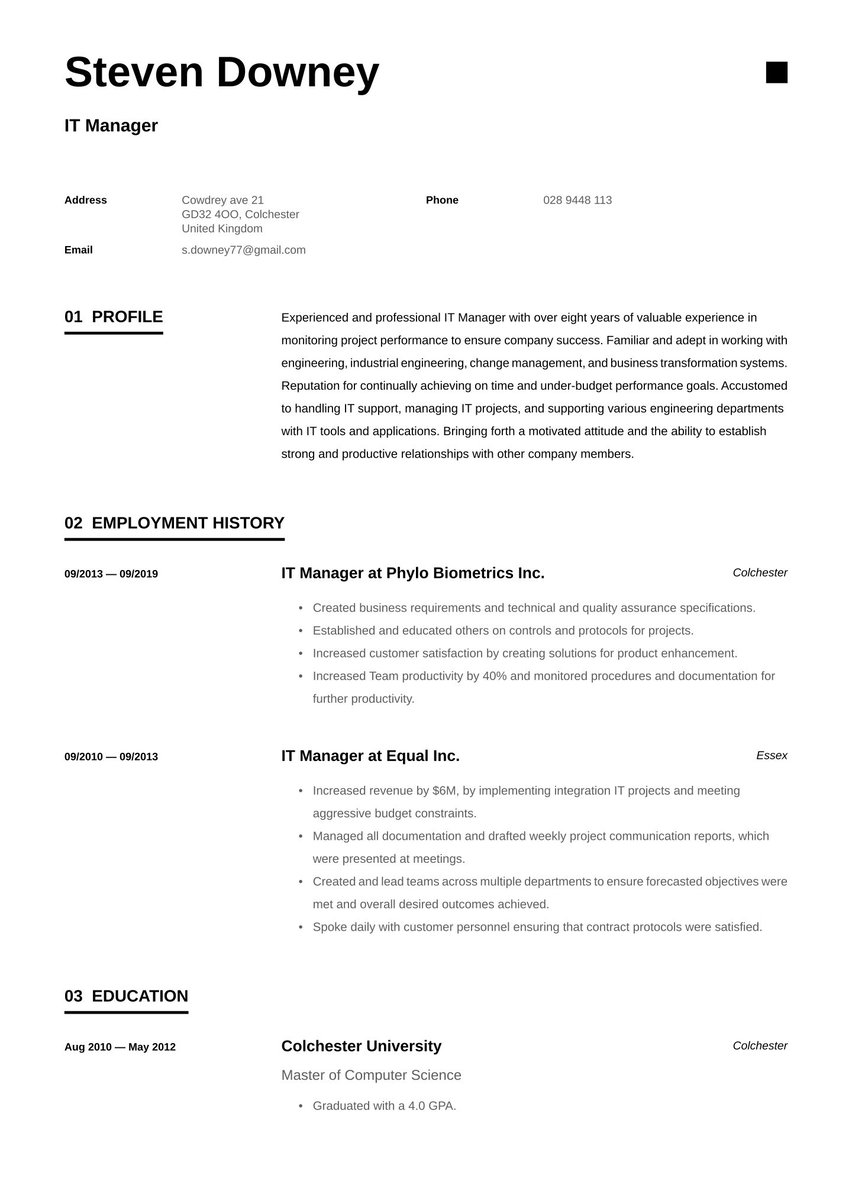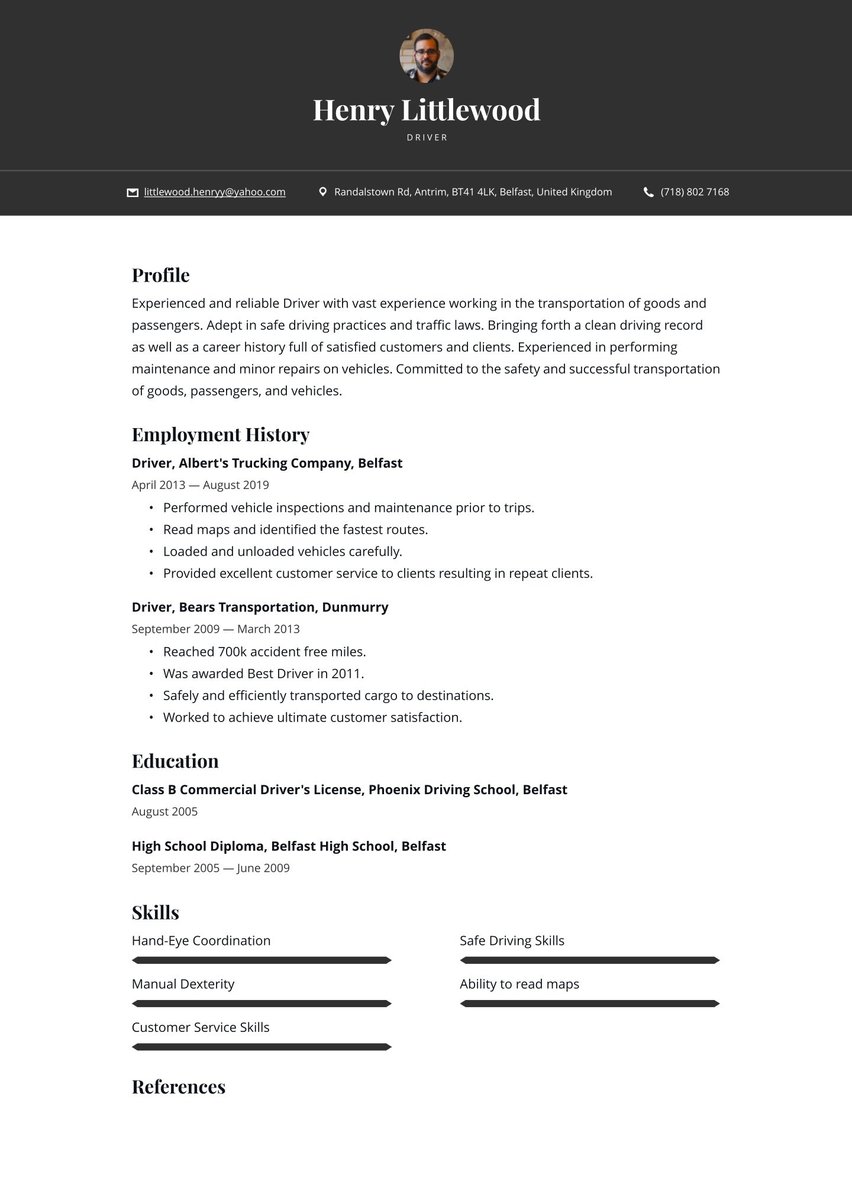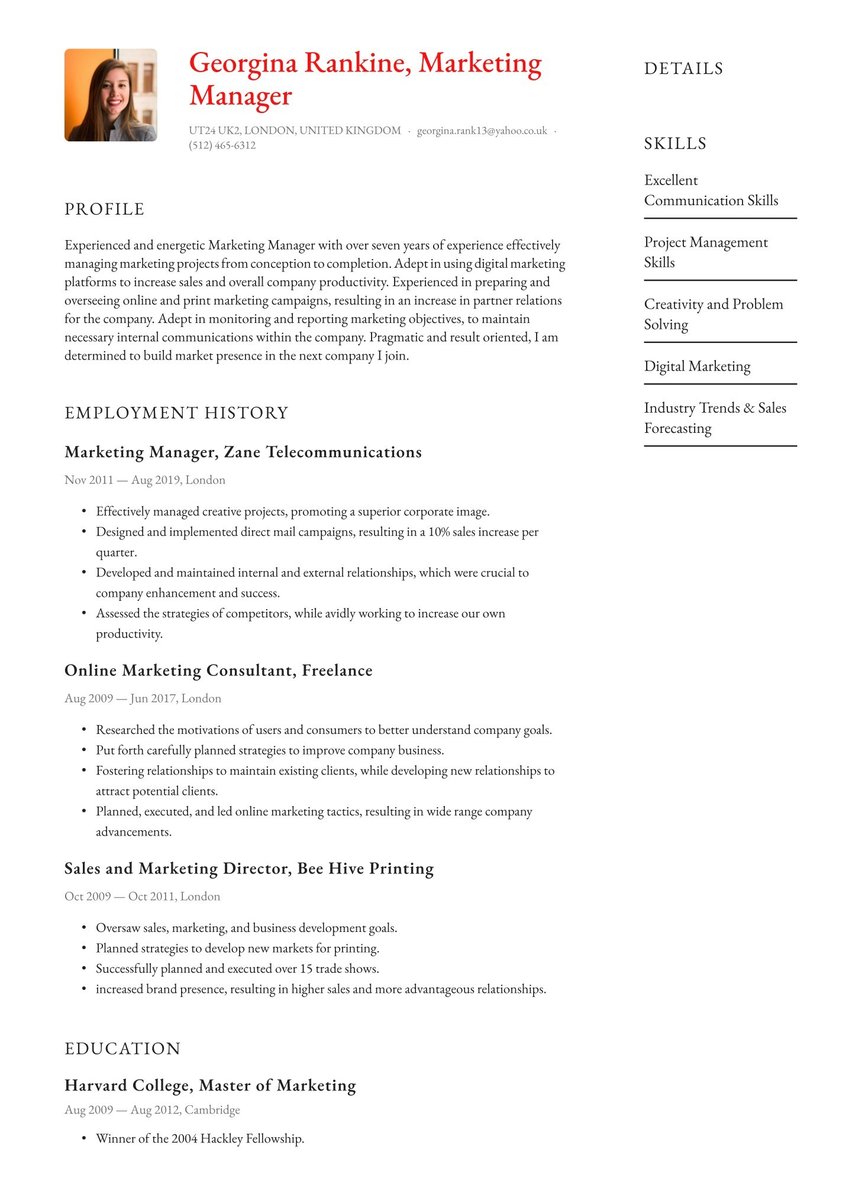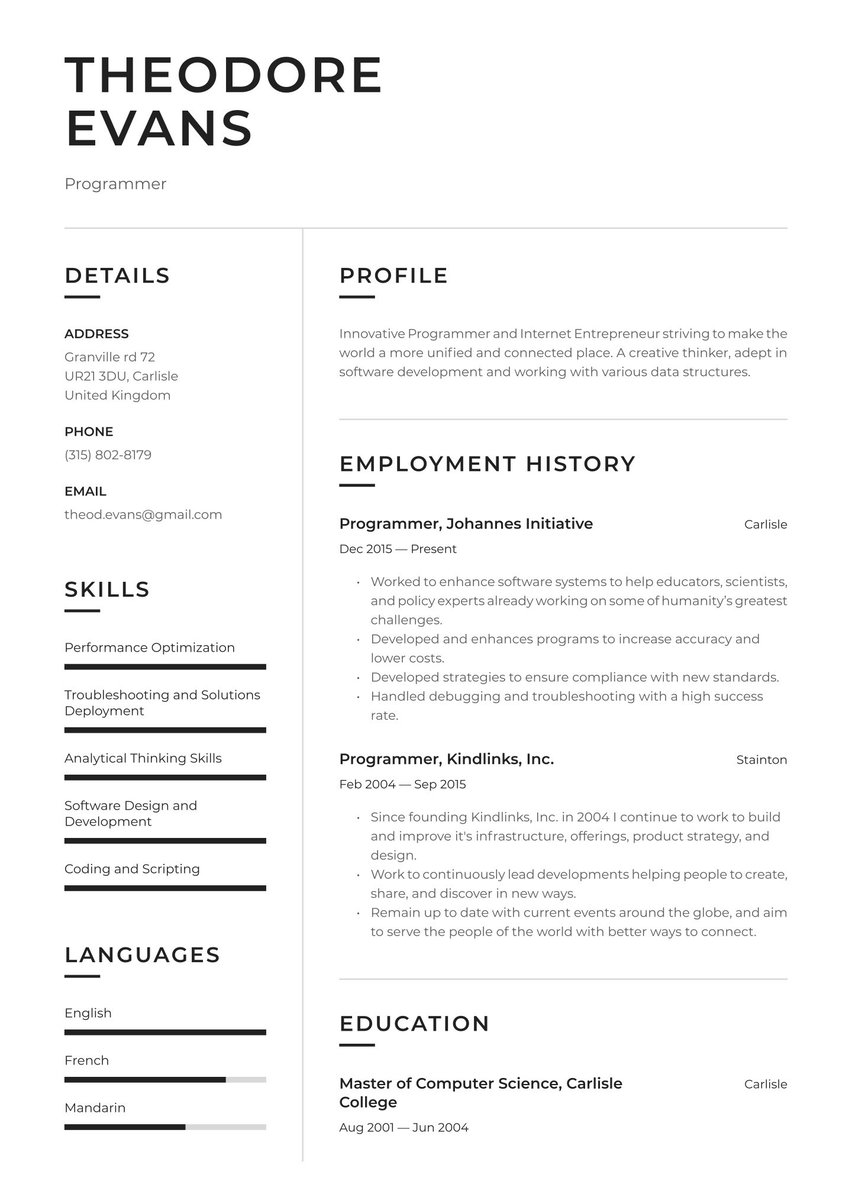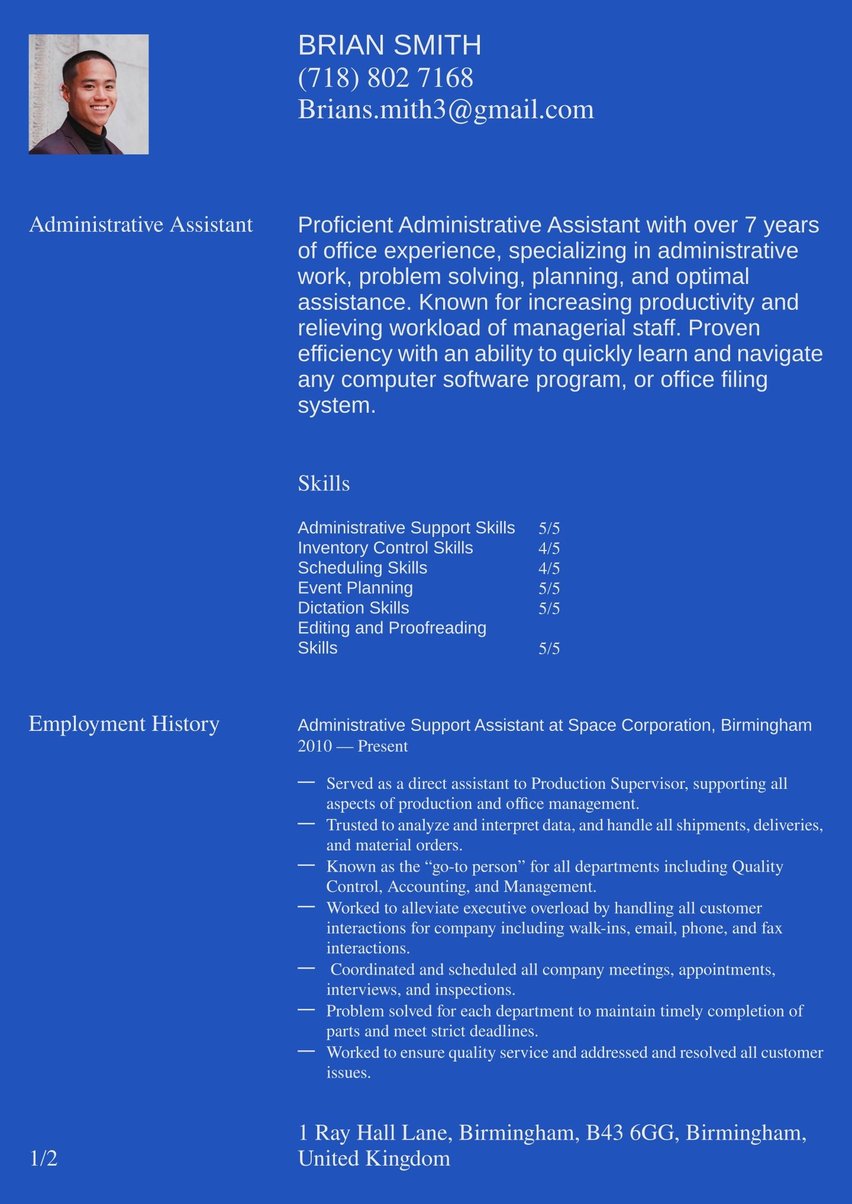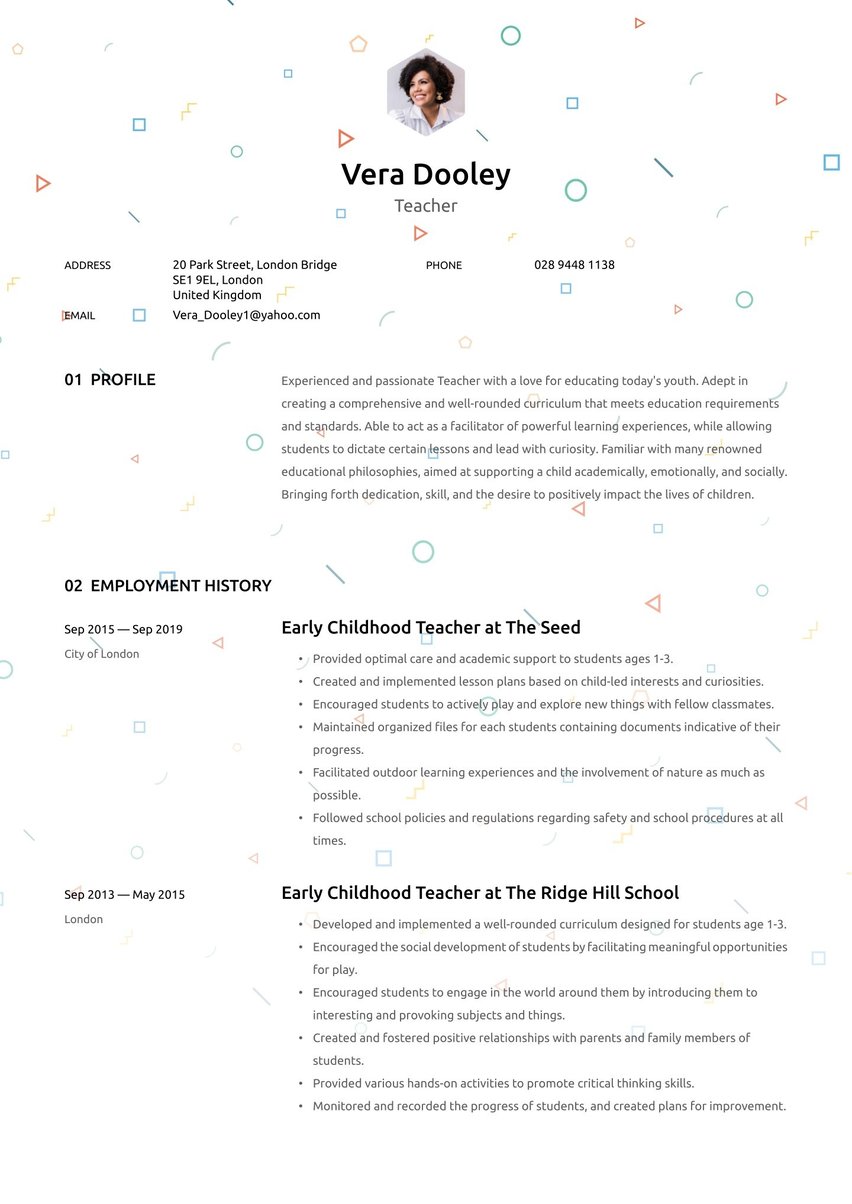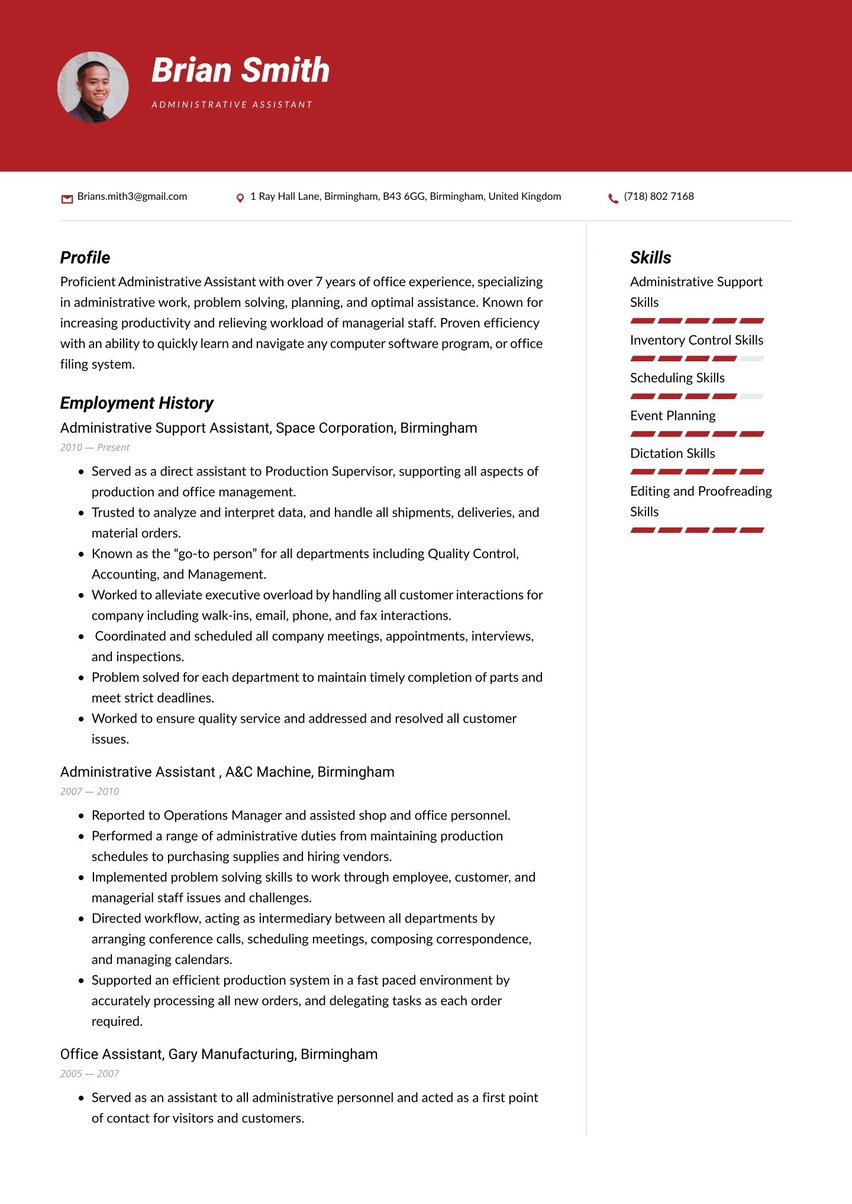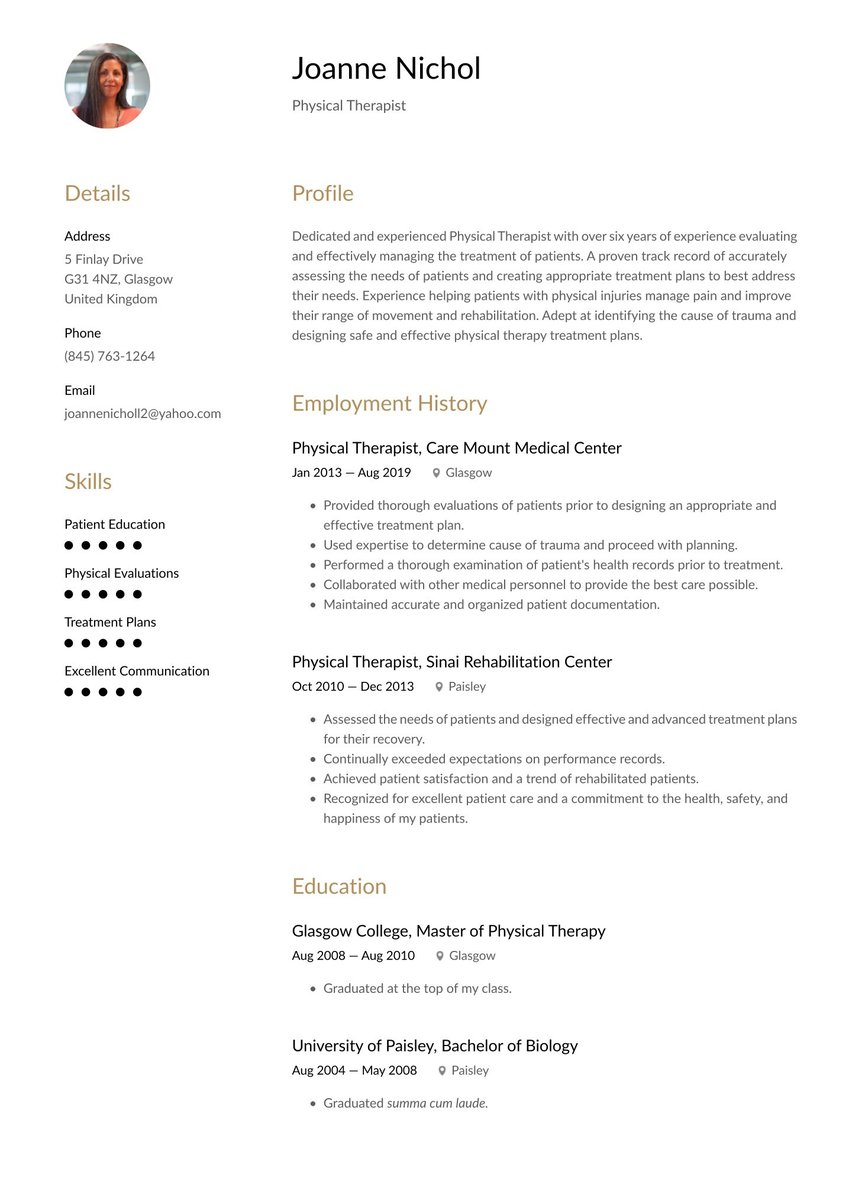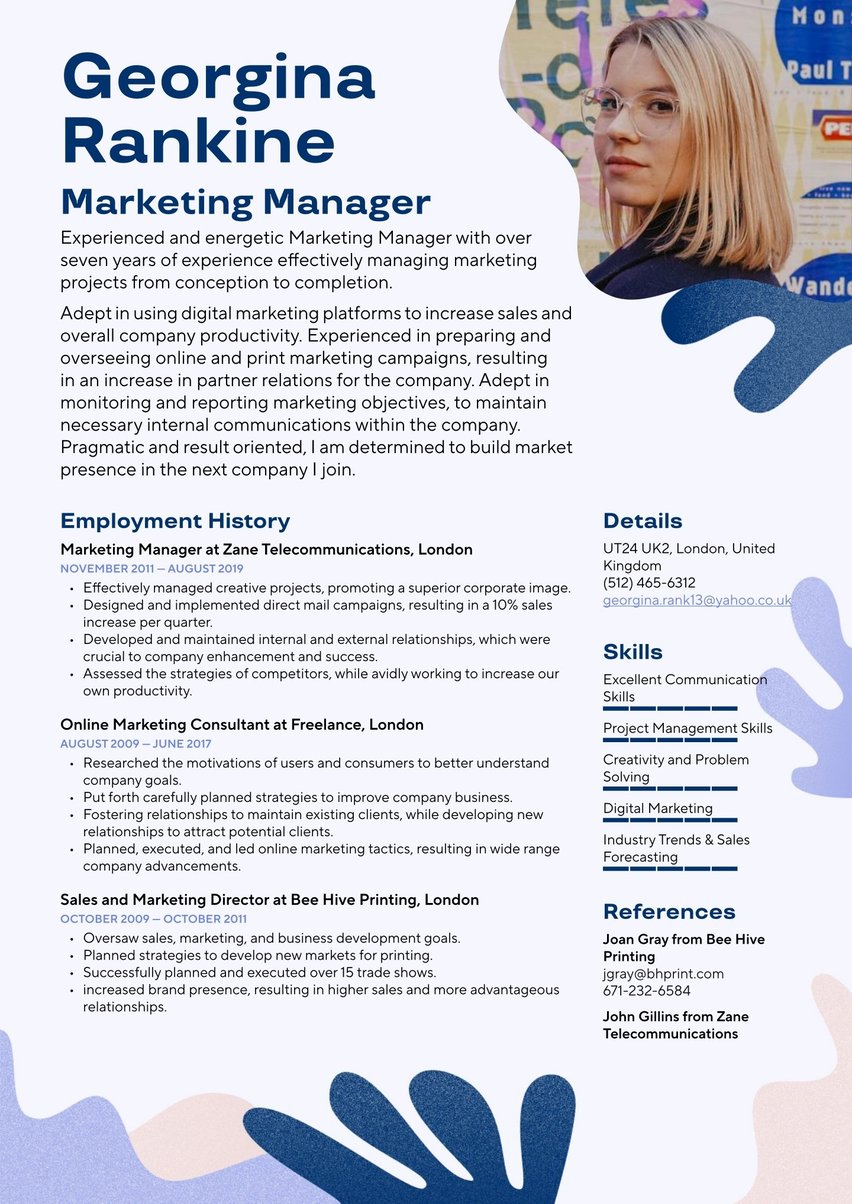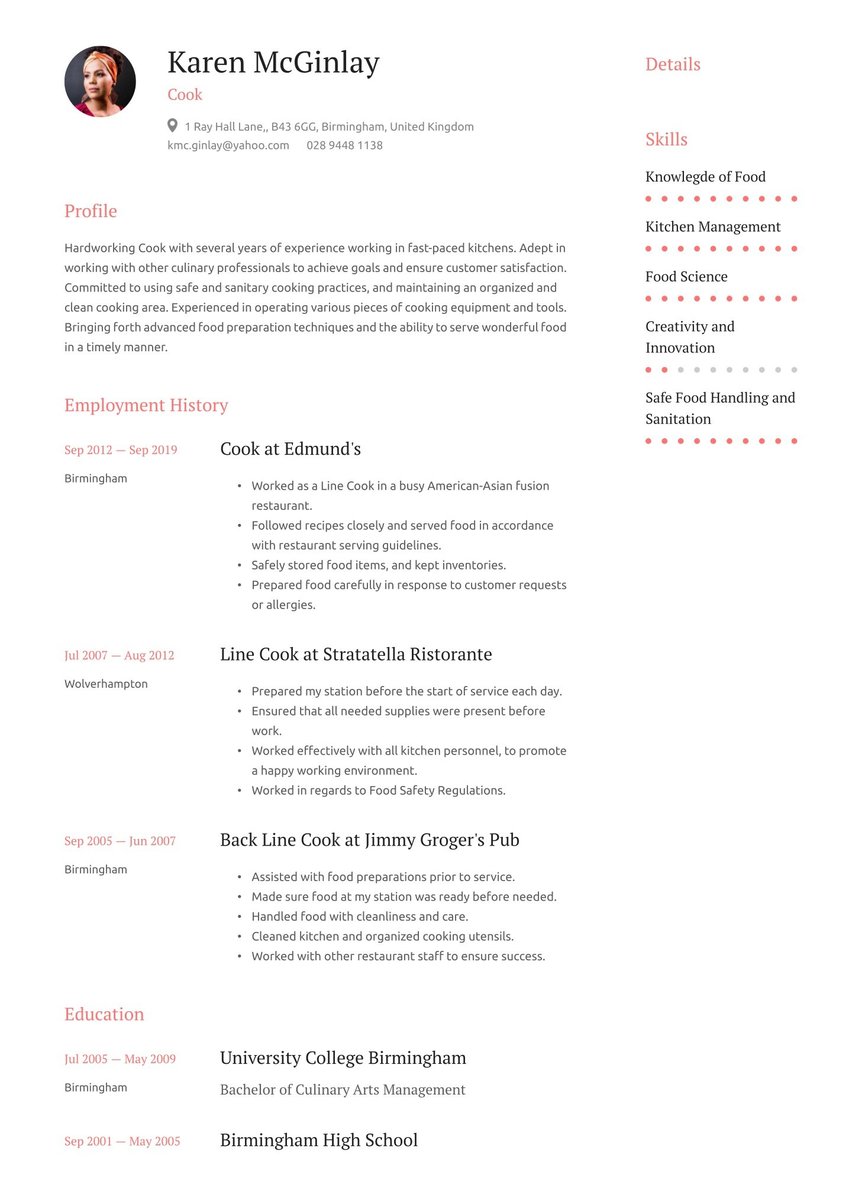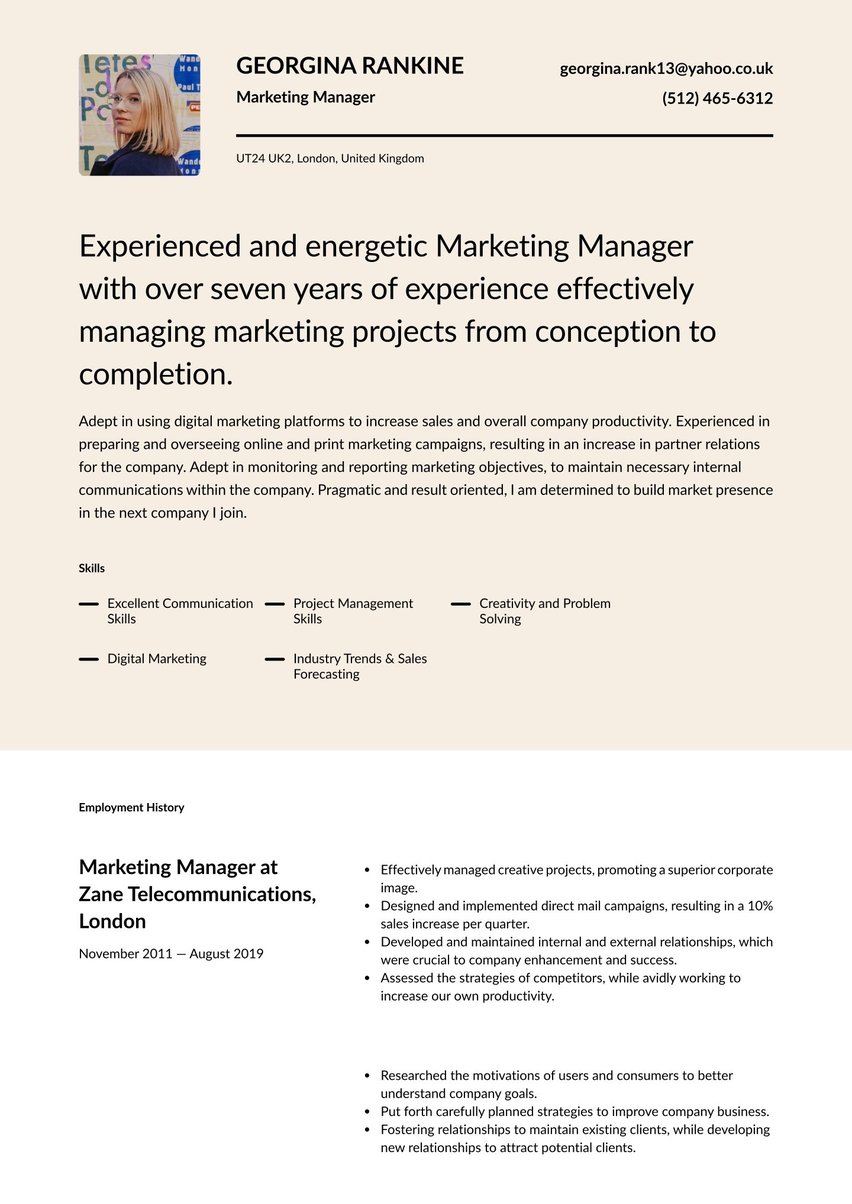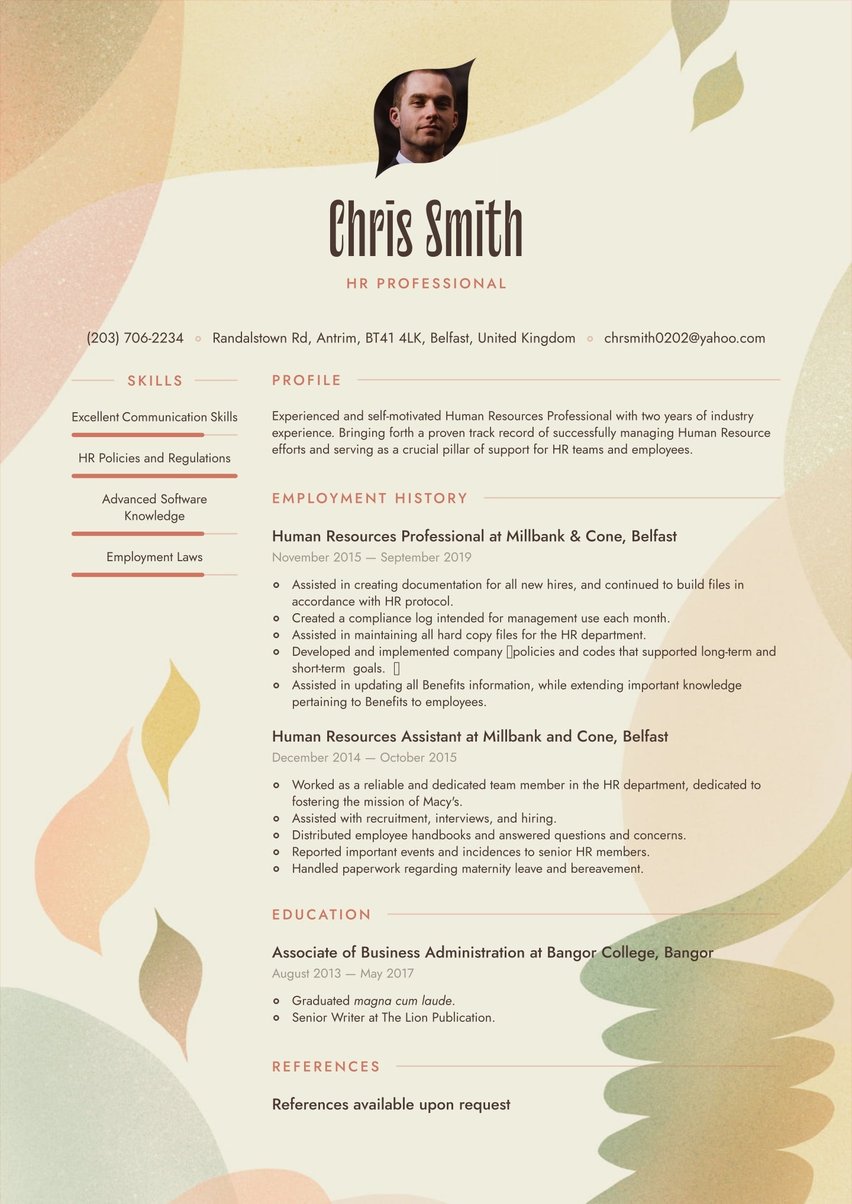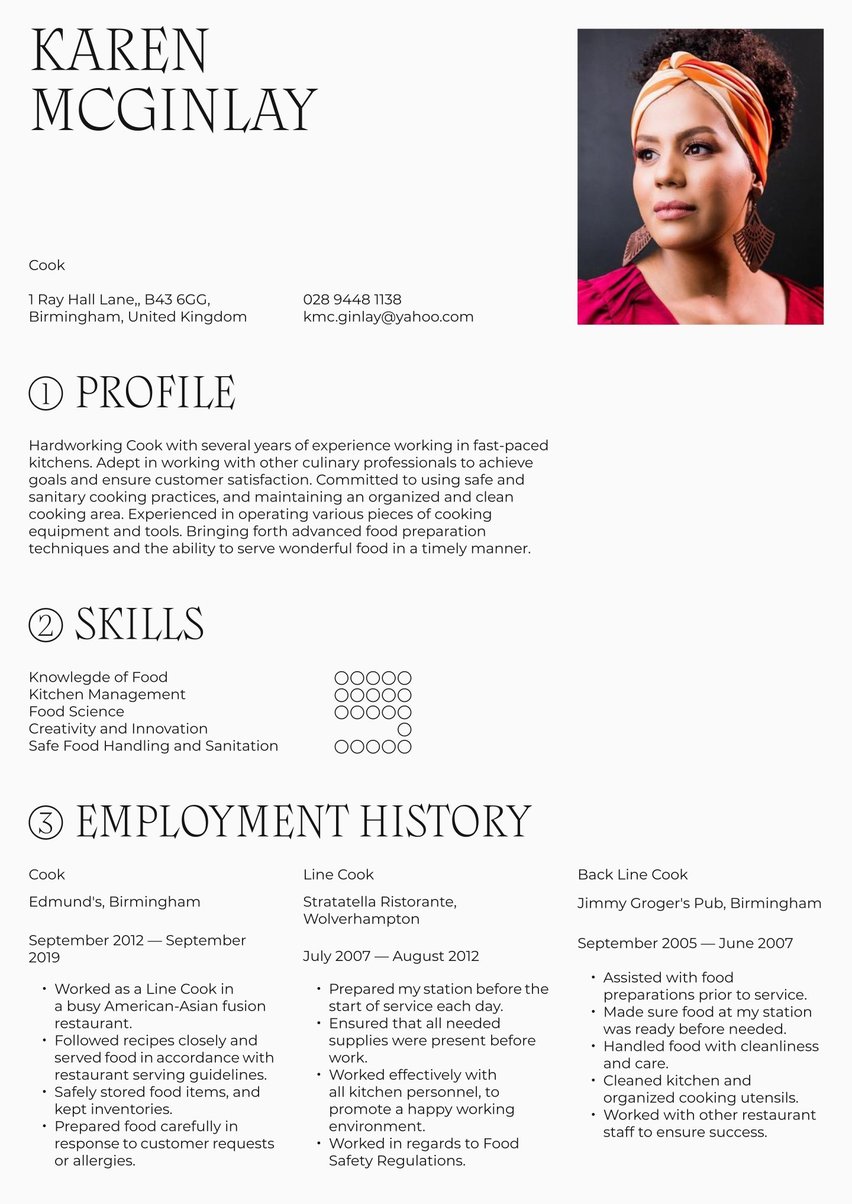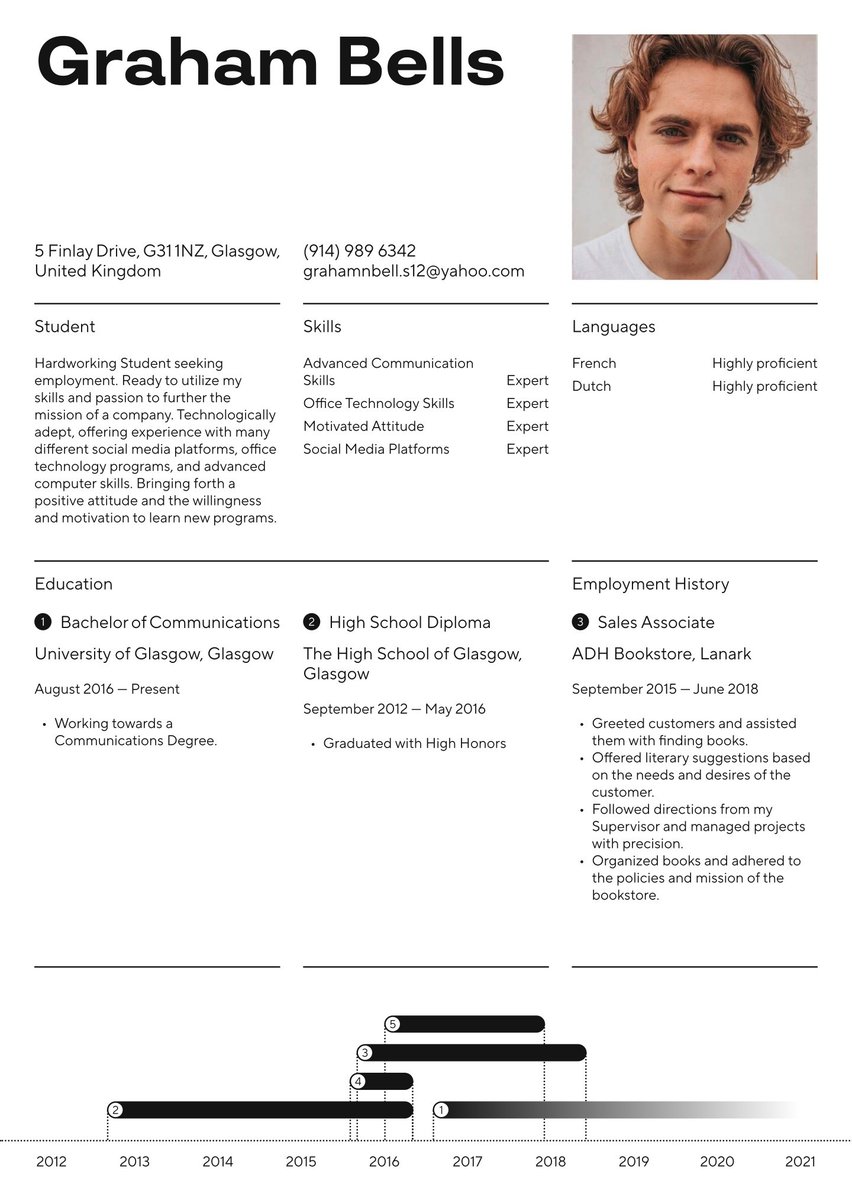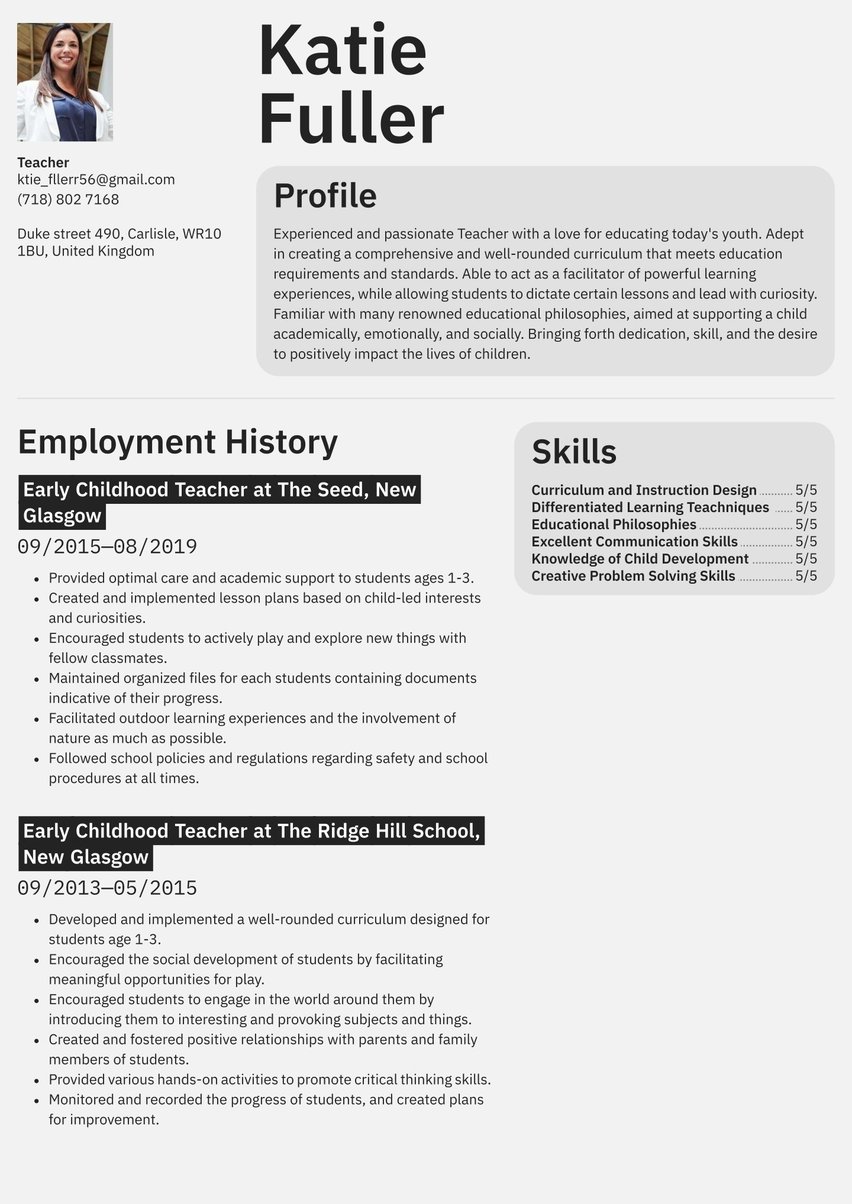Efficient, detail-oriented Administrative Assistant with extensive experience in coordinating day-to-day office operations. Highly organised and able to prioritise multiple tasks in fast-paced environments. Skilled at liaising with internal and external stakeholders to schedule meetings, conferences, and other events. Adept at managing supplies and handling procurement.
05/2018 - 06/2023, Administrative Assistant, Taylor Root, London
- Assist HR manager with on-boarding of incoming personnel.
- Monitor training requirements and ensure staff remain current.
- Create and maintain detailed files and records.
- Manage calendars, schedule meetings and reserve conference room.
- Monitor and purchase office and IT supplies.
- Collaborated and liaised with the wider HR team.
- Supported the decision-making process by providing detailed reports and analyses every quarter.
- Implemented processes and procedures to streamline office operations.
09/2014 - 05/2018, Bachelor of Arts in English, University of London, London
- Effective Time Management
- Teamwork Skills
- Interpersonal Skills
- Multitasking Skills
- Office Operations
- Administrative Support
- Procurement
- Decision-Making
- Communicating & Influencing
Serving the nation’s needs. It might sound dramatic, but that’s exactly what a civil servant does. However, to work at what The Times has ranked at the number one graduate employer, you’ll need an impressive civil service CV.
Luckily, at Resume.io we’ve helped job seekers to secure positions in a variety of careers thanks to our CV guides and CV examples library. This CV guide, along with the corresponding CV example will cover the following topics:
- What does a civil servant do?
- How to write a civil service CV (tips and tricks)
- The best format for a civil service CV
- Advice on each section of your CV (summary, work history, education, skills)
- Professional CV layout and design hints.
What does a civil servant do?
Whether directly or indirectly, as a civil servant you are helping the government to develop and implement its policies. The civil service covers multiple departments and agencies. As part of the civil service workforce, you might work in law or finance, or even science and engineering.
From international trade to housing or transportation, there’s likely to be a job that fits almost any profile within the civil service.
In recent years, there have been intentional efforts to bring greater equality and diversity into the workplace, with women and minorities being encouraged to take on opportunities and leadership roles. These efforts have been fueled by competitive salaries, substantial benefits, learning opportunities, career progression, and flexible working arrangements.
A wide professional network is another feature that attracts many to a career in the civil service. Whether you’re a fresh graduate or a professional moving out of the private sector, there’s an entry route for you. Plus, paid apprenticeships and leadership development programs make it easier for younger individuals to enter and rise within the institution.
Working in the civil service can prove to be a rewarding career where you help to put taxpayers’ money to good use and ultimately shape the country’s future. Regardless of your role, that’s a real opportunity to work towards making a difference in people’s daily lives.
How much can you earn in the civil service?
In March 2022 the Cabinet Office reported a median salary of £30,110 for those who work in the civil service. This of course varies by grade. Junior staff could be looking at a modest £21,380 while more experienced, senior staff could earn up to £82,550 per year.

How to write a civil service CV
The very first step in writing your civil service CV is understanding what sections to include. Your CV should contain the following elements:
- The CV header
- The CV summary (aka profile or personal statement)
- The employment history section
- The CV skills section
- The education section
The tone of your CV will depend on the governmental department you are applying to and the nature of your role. Make sure to do some further research on LinkedIn and the governmental department’s website to get the full picture of what the department or agency does and what you can expect from a role there. This will help you to choose the right writing tone.
Optimise for the civil service hiring process
The Cabinet Office recognises that its hiring process is specific and new candidates can struggle. You can find out more about the civil service hiring process at Civil Service Careers. However, the Cabinet Office offers the following top tips:
- Use specific examples
- Use the STAR approach in your writing
- Use “I” rather than “we” when writing about your work
- Read the guidance available (in particular about civil service behaviours)
- Choose one example per civil service behaviour
Choosing the best CV format for a civil servant
Usually the civil service will expect you to use the reverse chronological CV format.
This means that your most recent experiences and accomplishments will be highlighted first, followed by previous roles in descending order.
Adhering to this format allows the hiring authorities within the civil service to quickly grasp your career progression and gauge your suitability for the position. By presenting your CV in this easy-to-skim format, you showcase your most recent and relevant expertise at a glance for the hiring manager. This lets them evaluate your qualifications and potential impact in the role quickly.
CV summary example
The first thing the hiring manager is paying attention to on your application is your CV summary. This is where you will break down the top points of why your professional profile is a great fit for this role in the civil service.
Efficient, detail-oriented Administrative Assistant with extensive experience in coordinating day-to-day office operations. Highly organised and able to prioritise multiple tasks in fast-paced environments. Skilled at liaising with internal and external stakeholders to schedule meetings, conferences, and other events. Adept at managing supplies and handling procurement.
Your ideal civil service role could fall under a number of different governmental organisations or roles. Our CV sample content below will help to get your started. However, take a look at some of our other CV guides for further inspiration when writing your civil service summary:
According to a 2022 stats bulletin from the Cabinet Office, there are over 500,000 professionals currently working in the civil service workforce on full-time or equivalent contracts. Over two thirds of those are employed by the biggest governmental departments:
- Department for Work and Pensions
- Ministry of Justice
- HM Revenue and Customs
- Ministry of Defence
- Home Office
Employment history sample
The employment history section of your civil service CV should provide a clear and concise account of your professional experience. Begin by listing your previous roles in reverse chronological order, starting with the most recent position held.
Include the job title, organisation, the dates of employment for each role, and its location. Beneath these details, offer a brief overview of your responsibilities and key accomplishments. Highlight any relevant skills or achievements that align with the requirements of the civil service position you are applying for with several bullet points underneath each role.
Administrative Assistant, Taylor Root, London
May 2018 - Present
- Assist HR manager with on-boarding of incoming personnel.
- Monitor training requirements and ensure staff remain current.
- Create and maintain detailed files and records.
- Manage calendars, schedule meetings and reserve conference room.
- Monitor and purchase office and IT supplies.
- Collaborated and liaised with the wider HR team.
- Supported the decision-making process by providing detailed reports and analyses every quarter.
- Implemented processes and procedures to streamline office operations.
Civil service behaviours
To pass the rigorous sift for a civil service job, you will be assessed on certain civil service behaviours. The ones you will be expected to exhibit depend on your job level. However, some regularly occurring ones include:
- Working together
- Communicating and influencing
- Managing a quality service
- Delivering at pace
- Seeing the bigger picture
- Making effective decisions
You will need strong examples of these in other parts of your application. So, keep the narrative cohesive and illustrate them through the bullet points of your employment history section, too!
The civil service is open to you talking about other types of experience in your previous employment section. Volunteering, education, or even hobbies or extracurriculars are all areas that they encourage you to draw examples from about your suitability for the role.
CV skills example
No civil service CV example is complete without a powerful and relevant list of skills. This is a great place to use some keywords that are present in the job description that you possess but haven’t mentioned elsewhere.
You should include five to ten skills and list them in order of relevance to the role. Look at the sample CV content below for some ideas on the types of skills you can include in this section.
- Effective Time Management
- Teamwork Skills
- Interpersonal Skills
- Multitasking Skills
- Office Operations
- Administrative Support
- Procurement
- Decision-Making
- Communicating & Influencing
Civil servant CV education example
Civil servants come from a range of backgrounds. However, you will be expected to list your education on your CV. If you have a university degree or equivalent then there’s no need to list your secondary education.
Whatever your education story is, make sure to include the name of your qualification, the institution you studied at, the dates attended and its location. Include your grades, too, if appropriate.
Bachelor of Arts in English, University of London London
September 2014 - May 2018
CV layout and design
Whatever your area is within the civil service, you will be expected to be a clear communicator. You’ve worked hard on the content of your civil service CV.
However, if you are expected to attach a CV to your application, your visual communication will be just as important. A clearly structured CV with a simple colour palette and legible font is the most likely to win over the hiring manager.
If you prefer to spend your time exclusively on the content of your CV, our CV templates could be what you’re looking for.
Key takeaways for a civil service CV
- A career in the civil service can offer stable work conditions and a fair salary. However, you’ll need a top CV to land this coveted job.
- The tone of your civil service CV will depend on the body and role you’re applying for. So do your research!
- Double down on your civil service behaviours throughout your CV content.
- Keep your visual communication clear with a well considered CV design.

